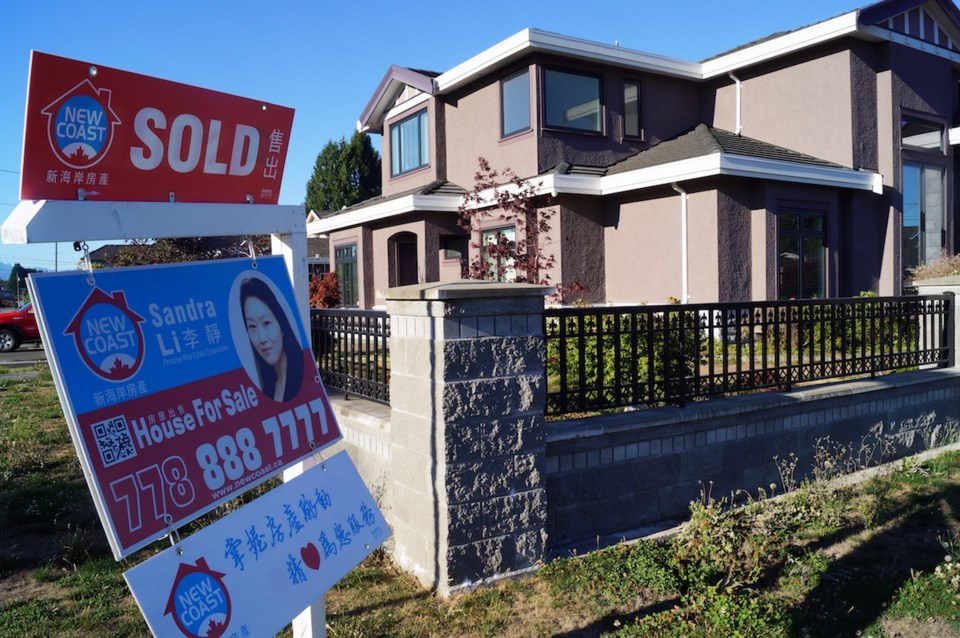A 30-point plan to reduce speculation and tax evasion in the residential real estate sector, and more money for child care, are among the key pillars of the BC NDP government’s first full budget.
But other hotly-debated local issues in Richmond from last May’s election, such as infrastructure — including seismic upgrades for schools, a new Richmond Hospital tower and a George Massey Tunnel replacement crossing — have been left off Finance Minister Carole James’ line items.
UBC Sauder School of Business professor Tom Davidoff said the government’s adoption of a speculation tax and an increase of the foreign buyers’ tax to 20 per cent sends a strong message.
“B.C. should be a place where the tax code makes it hard to buy property but easy to make a living. We’ve been the opposite so they’re moving in the right direction,” said Davidoff.
He supports the annual speculation tax, which will be two per cent of a home’s value, offset by paid taxes. Ergo, those who don’t pay taxes but own property will be targeted. Most principal residences will be exempt.
Meanwhile, foreign buyers, who account for 7.5 per cent of Richmond homeowners, will pay more taxes.
But the tax will still not apply to farmland, despite the government committing to “examining” taxes on the Agricultural Land Reserve.
“They increased the Foreign Buyer's Tax on residential properties which will incentivize farmland even more. Why did they fail to act to protect farmland?” asked Richmond FarmWatch, via Facebook.
With Richmond’s River Rock Casino and Resort at the centre of ongoing media reports of money laundering, the government also aims “to formalize a multi-agency working group on tax evasion, money-laundering and housing.”
The government aims to close loopholes on beneficial ownership, which is thought by many industry analysts, to mask to true nature of foreign money in the market.
Additional measures include property transfer taxes on homes over $3 million increasing from three to five per cent.
This will generate much revenue from home flipping in high-priced neighbourhoods such as Terra Nova.
But residents there, who declare some of the lowest incomes in the province, will benefit from a new child care benefit, which dictates households earning less than $45,000 will receive a monthly credit of $1,250 per child in care. The credit is progressively lower for households earning up to $110,000.
Nevertheless, long-awaited infrastructure projects will continue to be on hold.
Despite petitions from Richmond First city councillors, local NDP branch Richmond Citizens Association and the Richmond Chamber of Commerce, the hospital has yet to receive a green light on its business plan, according to Vancouver Coastal Health (VCH), and was shut out of the budget — despite campaign promises by the NDP to immediately begin building a new tower.
In fact, the concept plan — the precursor to a business plan — has yet to be approved, according to VCH. A business plan may take 12 to 18 months and only after its approval can the project be included in a budget.
And while the Richmond Board of Education has reported better communication with the Ministry of Education on seismic upgrades, there were no specific budget commitments on this front.
As well, a Massey Tunnel replacement project is no longer on the books, either.
“There is no relief for commuters in the Lower Mainland, except for the Pattullo Bridge which will only provide a 10 per cent capacity increase,” said BC Liberal finance co-critic Tracy Redies, via a statement. “There is no widening of Highway 1, no Surrey rapid transit and the 80,000 daily commuters who use the George Massey Tunnel are now completely forgotten.”
The opposition BC Liberals were also critical of the NDP’s plan to eliminate personal Medical Service Plan fees by 2020 with a new payroll tax on medium- and large-sized businesses.
-With Vancouver Courier file



